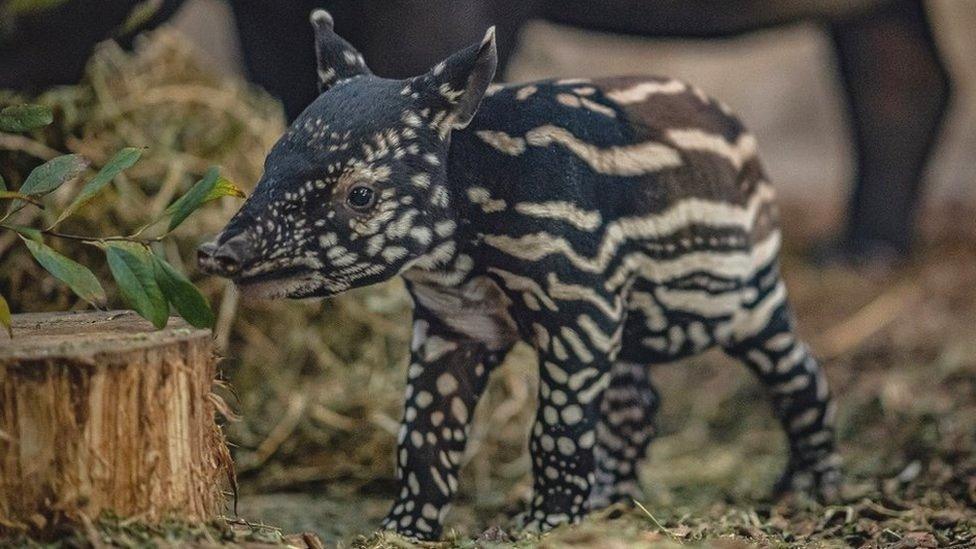Chester Zoo: Rare giant anteater birth boost for species, experts say
- Published
The birth at Chester Zoo is part of an international breeding programme.
The birth of a rare baby giant anteater is "incredibly positive news for the species", Chester Zoo has said.
Its arrival, only the third of its kind in the zoo's 92-year history, is part of an international breeding programme.
Giant anteaters, which are native to Central and South America, are considered vulnerable to extinction with numbers declining in the wild.
Chester Zoo team manager David White said the birth was "a boost" to the protection of the endangered species.
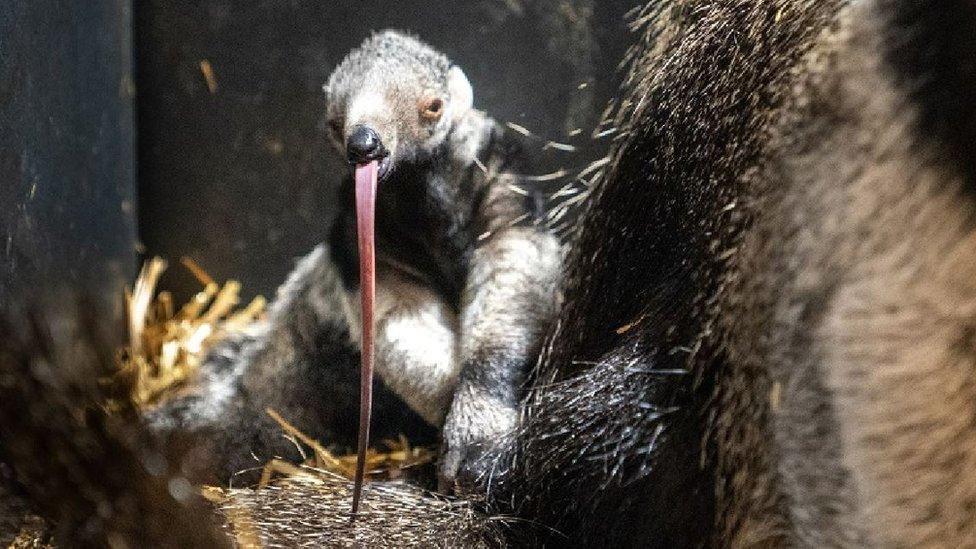
Giant anteaters do not have teeth and use their sticky tongue to feed
Giant anteaters are on the International Union for the Conservation of Nature (IUCN) Red List for species under threat, external.
Born to Bliss (13) and Oso (nine), the pup, which is yet to be named, currently measures about 60cm (2ft) and can reach up to 2.1m (7ft) in length when fully grown.
Experts said the pup will now cling to its mum's back for about 10 months, where its matching stripe on its fur keeps it camouflaged, until it is ready to walk, explore and find food independently.
"Giant anteaters are truly fascinating animals," Mr White said.
"Despite their large size when fully grown, they feed mostly on tiny insects and can devour up to 30,000 ants or termites in a day.
"This diet of little invertebrates means they don't have any teeth. Instead they use their sticky tongues to feed - these can reach two metres in length and can extend and withdraw at up to 150 times per minute."
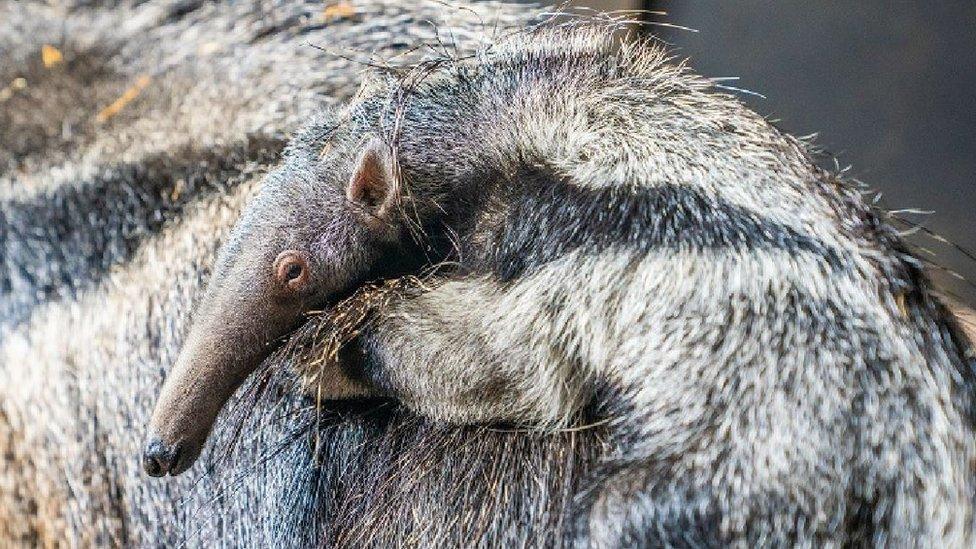
Giant anteaters are native to Central and South America with numbers declining in the wild
In the wild, much of the grassland giant anteaters depend on to survive has been destroyed or damaged by fire. In some areas of Brazil, where they once roamed freely, there are now none remaining, the zoo said.
Paul Bamford, the zoo's field conservation manager for South and Central America, said the charity was working with the Wild Animal Conservation Institute (ICAS) in Brazil to carry out vital research.
"This field work, coupled with our care and conservation breeding of giant anteaters at the zoo, is critical to understanding more about this wonderful animal and protecting future generations," he said.

Why not follow BBC North West on Facebook, external, Twitter, external and Instagram, external? You can also send story ideas to northwest.newsonline@bbc.co.uk, external
- Published4 April 2023
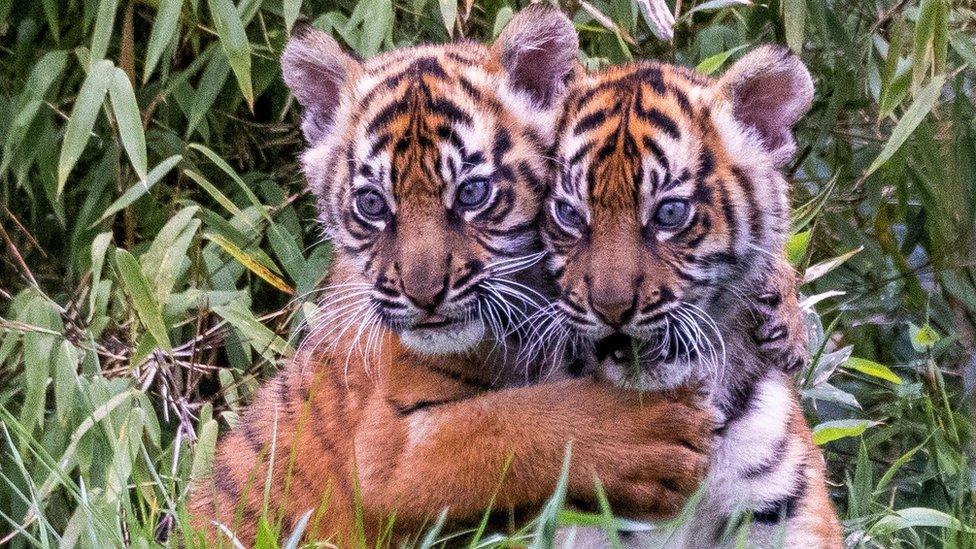
- Published10 February 2023
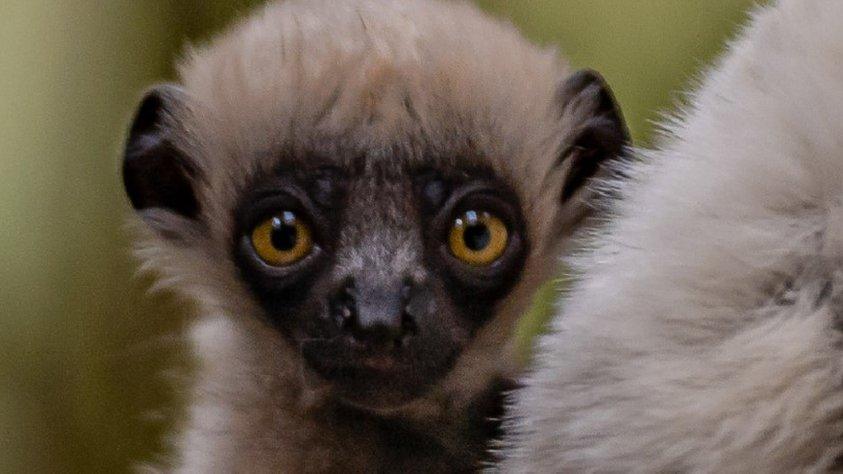
- Published26 January 2023
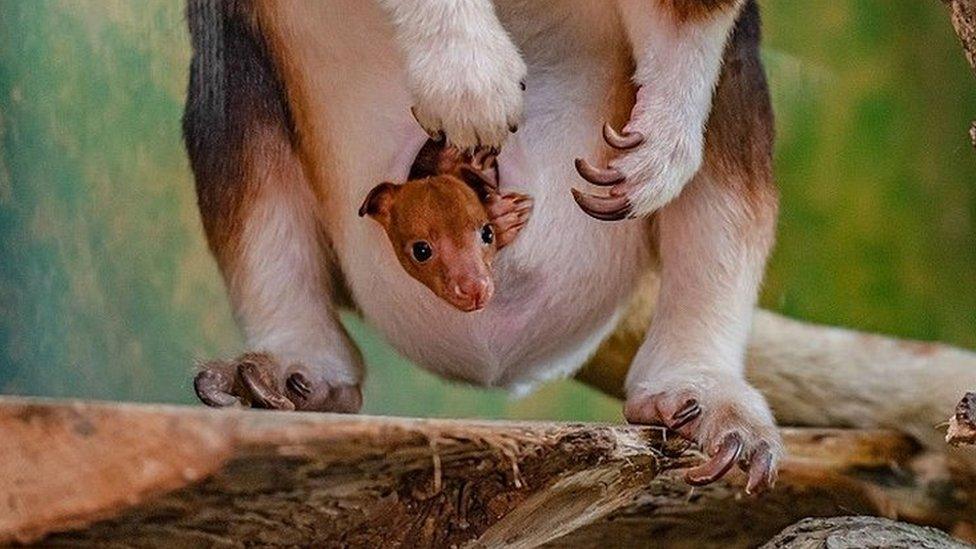
- Published12 January 2023
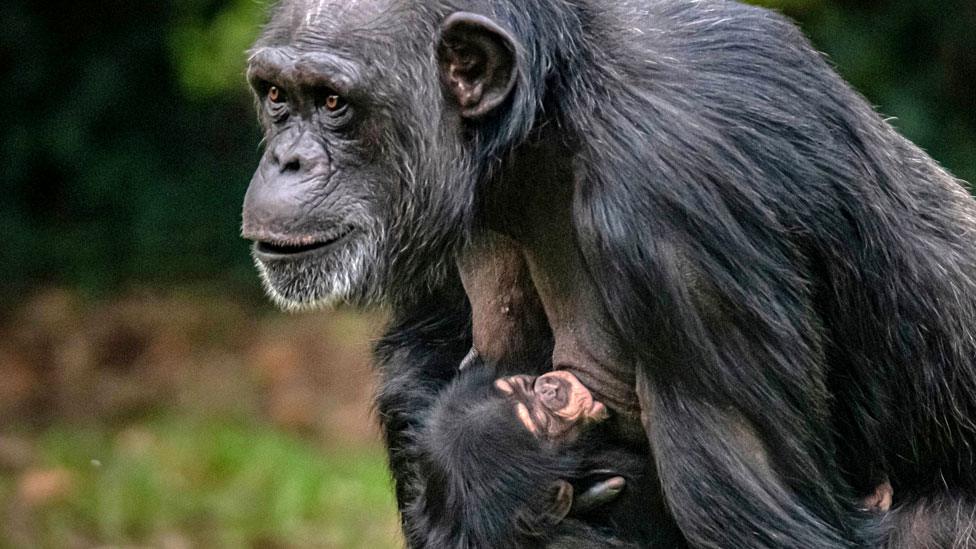
- Published9 December 2022
